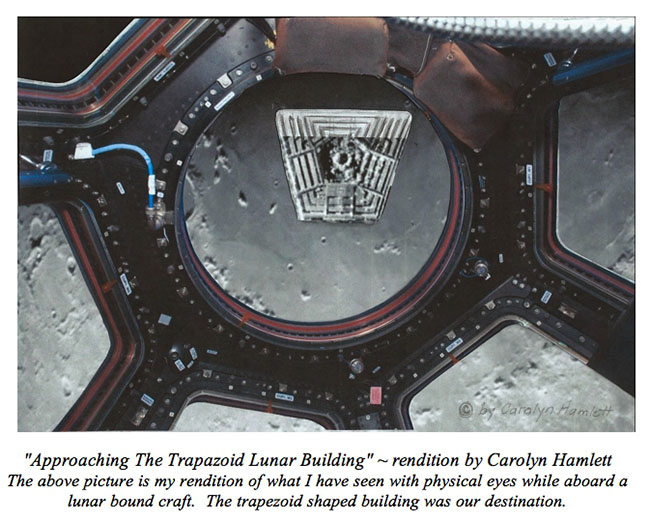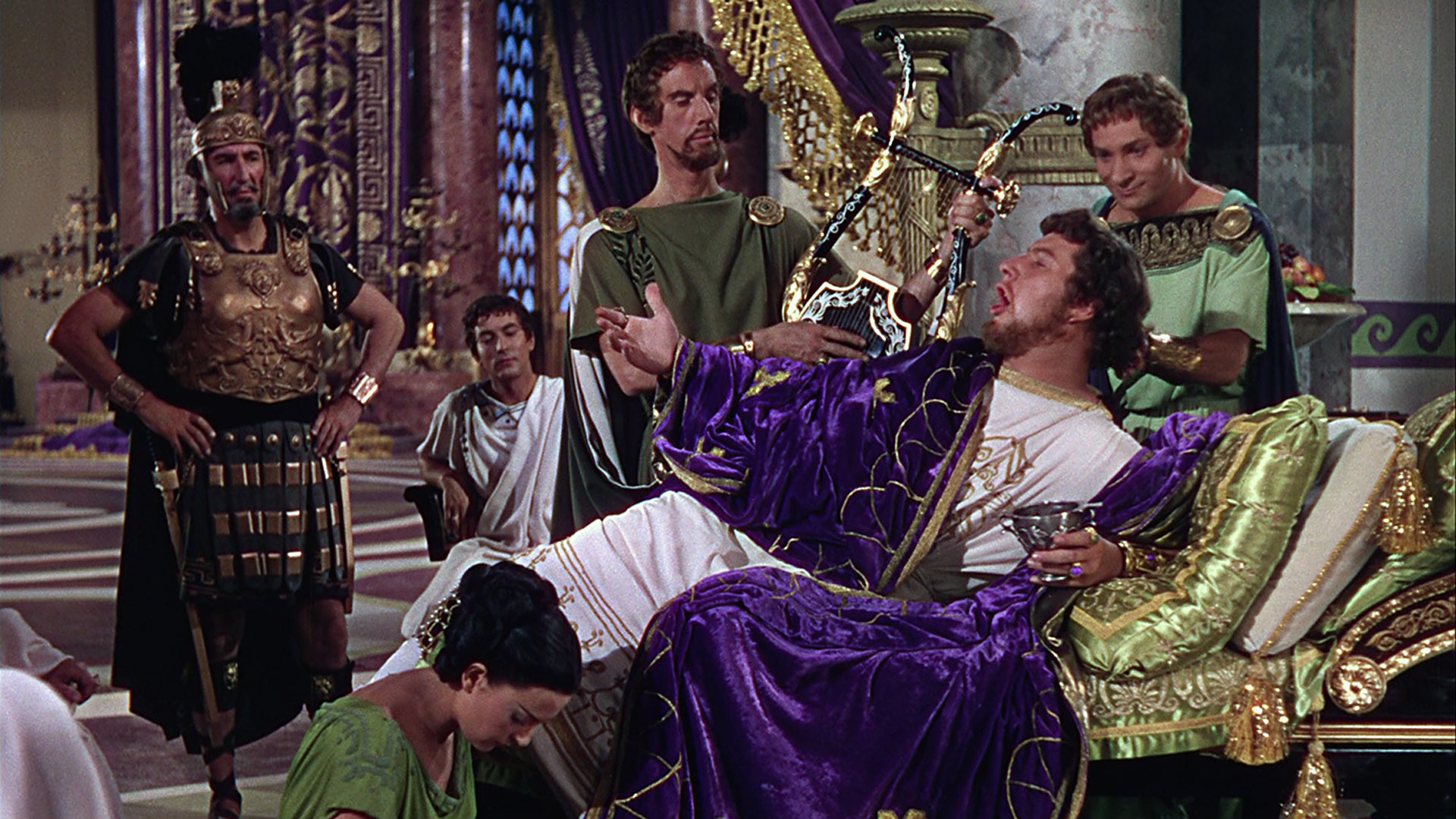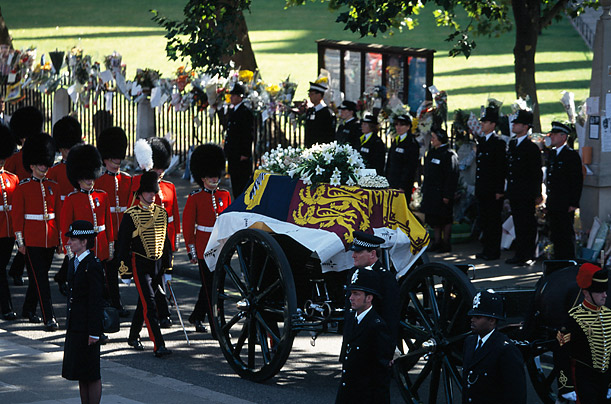Carol wrote:
Secret moon base uses abducted humans as slave labor
http://exopolitics.org/secret-moon-base-uses-abducted-humans-as-slave-labor/
Secret space program whistleblower, Corey Goode revealed an astonishing fact about a secret base on the far side of the moon in his response to email questions published on May 20. He described the moon base as belonging to one of five secret space programs that he has earlier disclosed in email responses and public internet forums as the “Dark Fleet” which exploits humans in various ways. Since his email response a witness has emerged who claims to have traveled to the base in question but has no recollection of what happened inside. A second witness, identified in this article, has also travelled to a secret moon base, very likely the same Dark Fleet base, but does recall what happened.
I begin with the relevant Q and A with Corey published on May 20:
Q20. What can you tell us about the other shared human moon base used by the dark fleet?
It is a Heavily Guarded and Secret Base that is at about the 10 o’clock position, on the Back Side of the Moon. The portion that is visible is a “Trapezoid Shape”. It is only accessible to the Dark Fleet and some ICC Personnel as well as the Draco Allied Forces. Some amateur astronomers have caught video of swarms of craft leaving from this base location on a couple of occasions. It is presumed to go far beneath the surface of the Moon just as the LOC does.
A member of the public forum The One Truth alerted Corey to the claims of Carolyn Hamlett, who says that she witnessed a moon base that she was taken to after being abducted. She recalled the shape of the base as being trapezoid and recreated it. Here is what she wrote about the recreation (see above).
The above picture is my creation from my memory. I put the picture together to illustrate what I have seen with physical eyes while aboard a lunar bound craft with other humans. The trapezoid shaped building was our destination. My first thought when I saw this structure was of its unique and significant shape, that of a de-capped pyramid and how much in architecture it reminded me of the Pentagon as seen in aerial photographs. Therefore, I chose a portion of an aerial photograph of the Pentagon to best illustrate the architecture of the actual building I saw on the moon. The rendition I have created is very much like the view I had as the craft I was in was making its approach. However, the actual building on the lunar surface does not have an inner court yard.
Corey was surprised to see the recreation and wrote:
This is amazing! This is extremely similar to how the “Dark Fleet” base actually looks.
In an earlier post on the same forum, he said that very few had seen the base before, and little was known about what was occurring inside:
There is almost ZERO information on the lay out and details of that base. It is some information that would be very useful.
Carolyn does not recall what happened inside the moon base because she is still attempting to recover the most traumatic memories associated with her abduction experiences. In her past abduction experiences she has experienced traumatic events, suggesting something similar happened to her at the secret moon base.
In his other email responses on May 20, Corey disclosed that he saw personnel on a secret Mars base that he believed were being used as slave labor. Also, he disclosed that remnants of a top secret Nazi Space program survived the Second World War and allied itself with an extraterrestrial race called Draco Reptilians. It is well known that Nazi Germany used slave labor for its secret technology programs. It’s more than likely that if a secret Nazi space program continued after the war and infiltrated the U.S. national security system as Corey claims, various off-planet bases used by the “Dark Fleet” and another secret space program called the Interplanetary Corporate Conglomerate (ICC) would also use human slave labor.
According to Corey, there is very little intelligence on what is happening inside of the moon base used by the Dark Fleet. There is however another military abductee who claims to have been taken to a secret moon base and does recall what happened to her.
Niara Terela Isley is a former US Air Force radar tracking operator who was forcibly recruited into a covert program when she witnessed a UFO while performing her official Air Force duties when she traveled with other USAF personnel to an assignment at the Tonopah Test Range in 1980. She and her colleagues were instructed to attempt to get a radar lock on the glowing UFO, and were then taken into custody by a covert faction of the USAF. She was then exposed to a number of traumatic experiences in these military abductions (MILABs) that she describes at length in her book, Facing the Shadow, Embracing the Light (2013). She reveals that she was taken between eight and ten times to a secret moon base that was guarded by Reptilian beings and used human workers:
In interviews, people always want to know what my moon experiences were like and I can certainly understand such avid curiosity. I can only state that it was terrible on multiple levels. I was terrified for my life the whole time. I was very poorly fed and worked hard during the day cycle, operating some kind of electronic equipment for excavation at times, and doing hard physical manual labor at others, such as lifting and stacking boxes. Worst of all, I was used for sex during what passed for night there, from man to man. I was allowed very little sleep, and I’ve since learned that this is another facet of mind control abuse. I shut down during all of this to the point that I didn’t even feel alive anymore. (Facing the Shadow, Embracing the Light, p.271)
Niara’s description is testimonial evidence that slave labor is both used on the moon, and that MILABs are taken there for that purpose either for short periods, or for indefinite periods as occurs on Mars. While she did not describe the shape of the moon base she was taken to, her experiences with Reptilian guards and physical abuse along with other human workers suggests it is the Dark Fleet base that Corey has described.
Corey’s revelation of an exploitative “Dark Fleet” base on the far side of the moon is now supported by two independent witnesses. Niara’s testimony and the experiences of Carolyn Hamlett, when combined with Corey’s revelations about Secret Space programs, leads to a disturbing conclusion. There is at least one secret base on the far side of the moon that uses abducted humans as slave labor.
Sanicle wrote:Yep, it's human monsters who do the most damage to their fellowman. Slavery, human sacrifice, pedophilia, torture, assassination ....... the list goes on and on.
orthodoxymoron wrote:My current deluded bias is that we all came here as other-than-humans from who-knows-where? -- and genetically-engineered human-physicality -- and got into nasty civil-wars spanning thousands of years. The theory is that we are the aliens -- and that our souls can animate various versions of physicality. We might be the gods, goddesses, angels, demons, aliens, et al -- and that because of our nasty behavior, this solar system is in a state of quarantine and/or lockdown. We might be our own best-friends and worst-enemies. We might be dealing with a Rogue Breakaway Civilization within this solar system (which is still US). I've said all of this before -- and I'm just tired and rambling. There might not be Saviors or Conquerors from Distant-Galaxies intruding and interfering within this solar system. The Rest of the Universe might simply be allowing us to Stew in Our Own Juice (while they make careful notes for future reference).
Carol wrote:Coast To Coast AM - May 21, 2015 Planet X & Enclosed Earth Theory
Published on May 22, 2015
In the first half, author and publisher Marshall Masters provided updates on Nibiru (Planet X), and touched on such topics as chemtrails, and survival communities. What's referred to as Planet X is actually a mini-constellation around a brown dwarf star in our own solar system that is on a 3,600 year orbit, he suggested. Right now, it's located on the opposite side of the sun, beyond the orbit of Jupiter, but as it reaches its closest distance to the sun it will accelerate, and cross over Earth's orbit. If our planet happens to be on the same side of the sun when that happens--- that's a worst case scenario that happened last at the time of Noah's flood, he stated.
Interestingly, Masters believes Nibiru was actually picked up on camera during an early morning TV newscast in Sacramento, in which the reporters were perplexed by what they were seeing. The effects from Nibiru's passage could be devastating he said, with a likely pole shift, and huge tsunamis slamming the coastlines. In a corollary to Bible prophecy, as Nibiru passes between Earth and the sun, it will cause days of darkness, and literally block out the sun, he added. Regarding weather modification and chemtrails, the elite may be doing it to create a mini-ice age, in advance of Planet X, which will cause the planet to heat up, he theorized. Masters said he's working on building a survival community that will broadcast information via shortwave broadcasts after the grid is knocked out.
Carol wrote:Nibiru / Planet X What Governments are Not Telling You - Nibiru Update
Published on Nov 9, 2014
Nibiru / Planet X What Governments are Not Telling You - Nibiru Update
John Moore, has conducted exhaustive interviews and studies with countless military and government individuals regarding Planet X, AKA Nibiru, who confirm that Planet X, our solar systems 10th planet does exist and will cause tremendous devastation when it next passes by earth. John lists numerous high ranking government officials who have confirmed Planet X exists, and that many coastal government agencies are building replacement headquarters much further inland to avoid having their existing coastal headquarters damaged by the impending coastal flooding. Dec 21, 2012 was a false date for Planet X, and could serve to lull the public into ignoring the real warnings when Planet X’s approach and likely devastation is imminent.
Planet X or ‘Nibiru’, a term made popular by Sumerian tablet translators is in reality a red dwarf star that enters our solar system from the south, crosses the ecliptic plane as it travels through our solar system in a northwardly trajectory until making its perihelion around the sun and returning to outer space in its 3,600year cycle. This red dwarf is a star that has not ignited and therefore can only be seen in the infrared. But according to ancient lore, the Bible and other ancient manuscripts, ‘The Great Destroyer’ ignites and is seen as a fiery dragon covering up the sun and creating a massive effect in the solar system including the earth. These effects include the falling of meteors of all sizes that this ‘red star’ brings in with it, objects that it brought in through its outbound and inbound trajectory in the Oort Cloud.
http://www.whiteestate.org/books/aa/aa32.html In his first letter to the church at Corinth, Paul gave the believers instruction regarding the general principles underlying the support of God's work in the earth. Writing of his apostolic labors in their behalf, he inquired:orthodoxymoron wrote:I'm almost to the point of skipping the predictions of future murder and mayhem -- and simply focusing upon the historical murder and mayhem -- such as the World Wars -- especially imagining what it might've been like to live in the middle of those events (on all sides -- and at all socio-economic levels). Hindsight is 20/20. On the other hand, I am presently living within a United States of the Solar System delusional-system, wherein I am imagining that this hypothetical governance modality already exists -- even though it probably never will. What if most all of the planets, moons, and larger-asteroids within this solar system are piloted??!! What if Nibiru and its Satellites are piloted??!! Dudes on Ludes shouldn't post on the internet!!
"Who goeth a warfare any time at his own charges? who planteth a vineyard, and eateth not of the fruit thereof? or who feedeth a flock, and eateth not of the milk of the flock? Say I these things as a man? or saith not the law the same also? For it is written in the law of Moses, Thou shalt not muzzle the mouth of the ox that treadeth out the corn. Doth God take care for oxen? or saith He it altogether for our sakes? For our sakes, no doubt, this is written: that he that ploweth should plow in hope; and that he that thresheth in hope should be partaker of his hope.
"If we have sown unto you spiritual things," the apostle further inquired, "is it a great thing if we shall reap your carnal things? If others be partakers of this power over you, are not we rather? Nevertheless we have not used this power; but suffer all things, lest we should hinder the gospel of Christ. Do ye not know that they which minister about holy things live of the things of the temple? and they which wait at the altar are partakers with the altar? Even so hath the Lord ordained that they which preach the gospel should live of the gospel." 1 Corinthians 9:7-14.
The apostle here referred to the Lord's plan for the maintenance of the priests who ministered in the temple. Those who were set apart to this holy office were supported by their brethren, to whom they ministered spiritual blessings. "Verily they that are of the sons of Levi, who receive the office of the priesthood, have a commandment to take tithes of the people according to the law." Hebrews 7:5. The tribe of Levi was chosen by the Lord for the sacred offices pertaining to the temple and the priesthood. Of the priest it was said, "The Lord thy God hath chosen him . . . to stand to minister in the name of the Lord." (Deuteronomy 18:5.) One tenth of all the increase was claimed by the Lord as His own, and to withhold the tithe was regarded by Him as robbery. It was to this plan for the support of the ministry that Paul referred when he said, "Even so hath the Lord ordained that they which preach the gospel should live of the gospel." And later, in writing to Timothy, the apostle said, "The laborer is worthy of his reward." 1 Timothy 5:18.
The payment of the tithe was but a part of God's plan for the support of His service. Numerous gifts and offerings were divinely specified. Under the Jewish system the people were taught to cherish a spirit of liberality both in sustaining the cause of God and in supplying the wants of the needy. For special occasions there were freewill offerings. At the harvest and the vintage, the first fruits of the field--corn, wine, and oil--were consecrated as an offering to the Lord. The gleanings and the corners of the field were reserved for the poor. The first fruits of the wool when the sheep were shorn, of the grain when the wheat was threshed, were set apart for God. So also were the first-born of all animals, and a redemption price was paid for the first-born son. The first fruits were to be presented before the Lord at the sanctuary and were then devoted to the use of the priests. By this system of benevolence the Lord sought to teach Israel that in everything He must be first. Thus they were reminded that God was the proprietor of their fields, their flocks, and their herds; that it was He who sent them the sunshine and the rain that developed and ripened the harvest. Everything that they possessed was His; they were but the stewards of His goods.
It is not God's purpose that Christians, whose privileges far exceed those of the Jewish nation, shall give less freely than they gave. "Unto whomsoever much is given," the Saviour declared, "of him shall be much required." Luke 12:48. The liberality required of the Hebrews was largely to benefit their own nation; today the work of God extends over all the earth. In the hands of His followers, Christ has placed the treasures of the gospel, and upon them He has laid the responsibility of giving the glad tidings of salvation to the world. Surely our obligations are much greater than were those of ancient Israel. As God's work extends, calls for help will come more and more frequently. That these calls may be answered, Christians should heed the command, "Bring ye all the tithes into the storehouse, that there may be meat in Mine house." Malachi 3:10. If professing Christians would faithfully bring to God their tithes and offerings, His treasury would be full. There would then be no occasion to resort to fairs, lotteries, or parties of pleasure to secure funds for the support of the gospel.
Men are tempted to use their means in self-indulgence, in the gratification of appetite, in personal adornment, or in the embellishment of their homes. For these objects many church members do not hesitate to spend freely and even extravagantly. But when asked to give to the Lord's treasury, to carry forward His work in the earth, they demur. Perhaps, feeling that they cannot well do otherwise, they dole out a sum far smaller than they often spend for needless indulgence. They manifest no real love for Christ's service, no earnest interest in the salvation of souls. What marvel that the Christian life of such ones is but a dwarfed, sickly existence!
He whose heart is aglow with the love of Christ will regard it as not only a duty, but a pleasure, to aid in the advancement of the highest, holiest work committed to man --the work of presenting to the world the riches of goodness, mercy, and truth. It is the spirit of covetousness which leads men to keep for gratification of self means that rightfully belong to God, and this spirit is as abhorrent to Him now as when through His prophet He sternly rebuked His people, saying, "Will a man rob God? Yet ye have robbed Me. But ye say, Wherein have we robbed Thee? In tithes and offerings. Ye are cursed with a curse: for ye have robbed Me, even this whole nation." Malachi 3:8, 9.
The spirit of liberality is the spirit of heaven. This spirit finds its highest manifestation in Christ's sacrifice on the cross. In our behalf the Father gave His only-begotten Son; and Christ, having given up all that He had, then gave Himself, that man might be saved. The cross of Calvary should appeal to the benevolence of every follower of the Saviour. The principle there illustrated is to give, give. "He that saith he abideth in Him ought himself also so to walk, even as He walked." 1 John 2:6.
On the other hand, the spirit of selfishness is the spirit of Satan. The principle illustrated in the lives of worldlings is to get, get. Thus they hope to secure happiness and ease, but the fruit of their sowing is misery and death.
Not until God ceases to bless His children will they cease to be under bonds to return to Him the portion that He claims. Not only should they render the Lord the portion that belongs to Him, but they should bring also to His treasury, as a gratitude offering, a liberal tribute. With joyful hearts they should dedicate to the Creator the first fruits of their bounties--their choicest possessions, their best and holiest service. Thus they will gain rich blessings. God Himself will make their souls like a watered garden whose waters fail not. And when the last great harvest is gathered in, the sheaves that they are enabled to bring to the Master will be the recompense of their unselfish use of the talents lent them.
God's chosen messengers, who are engaged in aggressive labor, should never be compelled to go a warfare at their own charges, unaided by the sympathetic and hearty support of their brethren. It is the part of church members to deal liberally with those who lay aside their secular employment that they may give themselves to the ministry. When God's ministers are encouraged, His cause is greatly advanced. But when, through the selfishness of men, their rightful support is withheld, their hands are weakened, and often their usefulness is seriously crippled.
The displeasure of God is kindled against those who claim to be His followers, yet allow consecrated workers to suffer for the necessities of life while engaged in active ministry. These selfish ones will be called to render an account, not only for the misuse of their Lord's money, but for the depression and heartache which their course has brought upon His faithful servants. Those who are called to the work of the ministry, and at the call of duty give up all to engage in God's service, should receive for their self-sacrificing efforts wages sufficient to support themselves and their families.
In the various departments of secular labor, mental and physical, faithful workmen can earn good wages. Is not the work of disseminating truth, and leading souls to Christ, of more importance than any ordinary business? And are not those who faithfully engage in this work justly entitled to ample remuneration? By our estimate of the relative value of labor for moral and for physical good, we show our appreciation of the heavenly in contrast with the earthly.
That there may be funds in the treasury for the support of the ministry, and to meet the calls for assistance in missionary enterprises, it is necessary that the people of God give cheerfully and liberally. A solemn responsibility rests upon ministers to keep before the churches the needs of the cause of God and to educate them to be liberal. When this is neglected, and the churches fail to give for the necessities of others, not only does the work of the Lord suffer, but the blessing that should come to believers is withheld.
Even the very poor should bring their offerings to God. They are to be sharers of the grace of Christ by denying self to help those whose need is more pressing than their own. The poor man's gift, the fruit of self-denial, comes up before God as fragrant incense. And every act of self-sacrifice strengthens the spirit of beneficence in the giver's heart, allying him more closely to the One who was rich, yet for our sakes became poor, that we through His poverty might be rich.
The act of the widow who cast two mites--all that she had--into the treasury, is placed on record for the encouragement of those who, struggling with poverty, still desire by their gifts to aid the cause of God. Christ called the attention of the disciples to this woman, who had given "all her living." Mark 12:44. He esteemed her gift of more value than the large offerings of those whose alms did not call for self-denial. From their abundance they had given a small portion. To make her offering, the widow had deprived herself of even the necessities of life, trusting God to supply her needs for the morrow. Of her the Saviour declared, "Verily I say unto you, That this poor widow hath cast more in, than all they which have cast into the treasury." Verse 43. Thus He taught that the value of the gift is estimated not by the amount, but by the proportion that is given and the motive that actuates the giver.
The apostle Paul in his ministry among the churches was untiring in his efforts to inspire in the hearts of the new converts a desire to do large things for the cause of God. Often he exhorted them to the exercise of liberality. In speaking to the elders of Ephesus of his former labors among them, he said, "I have showed you all things, how that so laboring ye ought to support the weak, and to remember the words of the Lord Jesus, how He said, It is more blessed to give than to receive." "He which soweth sparingly," he wrote to the Corinthians, "shall reap also sparingly; and he which soweth bountifully shall reap also bountifully. Every man according as he purposeth in his heart, so let him give; not grudgingly, or of necessity: for God loveth a cheerful giver." Acts 20:35; 2 Corinthians 9:6, 7.
Nearly all the Macedonian believers were poor in this world's goods, but their hearts were overflowing with love for God and His truth, and they gladly gave for the support of the gospel. When general collections were taken up in the Gentile churches for the relief of the Jewish believers, the liberality of the converts in Macedonia was held up as an example to other churches. Writing to the Corinthian believers, the apostle called their attention to "the grace of God bestowed on the churches of Macedonia; how that in a great trial of affliction the abundance of their joy and their deep poverty abounded unto the riches of their liberality. For to their power, . . . yea, and beyond their power they were willing of themselves; praying us with much entreaty that we would receive the gift, and take upon us the fellowship of the ministering to the saints." 2 Corinthians 8:1-4.
The willingness to sacrifice on the part of the Macedonian believers came as a result of wholehearted consecration. Moved by the Spirit of God, they "first gave their own selves to the Lord" (2 Corinthians 8:5), then they were willing to give freely of their means for the support of the gospel. It was not necessary to urge them to give; rather, they rejoiced in the privilege of denying themselves even of necessary things in order to supply the needs of others. When the apostle would have restrained them, they importuned him to accept their offering. In their simplicity and integrity, and in their love for the brethren, they gladly denied self, and thus abounded in the fruit of benevolence.
When Paul sent Titus to Corinth to strengthen the believers there, he instructed him to build up that church in the grace of giving, and in a personal letter to the believers he also added his own appeal. "As ye abound in everything," he pleaded, "in faith, and utterance, and knowledge, and in all diligence, and in your love to us, see that ye abound in this grace also," "Now therefore perform the doing of it; that as there was a readiness to will, so there may be a performance also out of that which ye have. For if there be first a willing mind, it is accepted according to that a man hath, and not according to that he hath not." "And God is able to make all grace abound toward you; that ye, always having all sufficiency in all things, may abound to every good work: . . . . being enriched in everything to all bountifulness, which causeth through us thanksgiving to God." 2 Corinthians 8:7, 11, 12; 9:8-11.
Unselfish liberality threw the early church into a transport of joy; for the believers knew that their efforts were helping to send the gospel message to those in darkness. Their benevolence testified that they had not received the grace of God in vain. What could produce such liberality but the sanctification of the Spirit? In the eyes of believers and unbelievers it was a miracle of grace.
Spiritual prosperity is closely bound up with Christian liberality. The followers of Christ should rejoice in the privilege of revealing in their lives the beneficence of their Redeemer. As they give to the Lord they have the assurance that their treasure is going before them to the heavenly courts. Would men make their property secure? Let them place it in the hands that bear the marks of the crucifixion. Would they enjoy their substance? Let them use it to bless the needy and suffering. Would they increase their possessions? Let them heed the divine injunction, "Honor the Lord with thy substance, and with the first fruits of all thine increase: so shall thy barns be filled with plenty, and thy presses shall burst out with new wine." Proverbs 3:9, 10. Let them seek to retain their possessions for selfish purposes, and it will be to their eternal loss. But let their treasure be given to God, and from that moment it bears His inscription. It is sealed with His immutability.
God declares, "Blessed are ye that sow beside all waters." Isaiah 32:20. A continual imparting of God's gifts wherever the cause of God or the needs of humanity demand our aid, does not tend to poverty. "There is that scattereth, and yet increaseth; and there is that withholdeth more than is meet, but it tendeth to poverty." Proverbs 11:24. The sower multiplies his seed by casting it away. So it is with those who are faithful in distributing God's gifts. By imparting they increase their blessings. "Give, and it shall be given unto you," God has promised; "good measure, pressed down, and shaken together, and running over, shall men give into your bosom." Luke 6:38.
http://www.whiteestate.org/books/aa/aa33.html While Paul was careful to set before his converts the plain teaching of Scripture regarding the proper support of the work of God, and while he claimed for himself as a minister of the gospel the "power to forbear working" (1 Corinthians 9:6) at secular employment as a means of self-support, yet at various times during his ministry in the great centers of civilization he wrought at a handicraft for his own maintenance.
Among the Jews physical toil was not thought strange or degrading. Through Moses the Hebrews had been instructed to train their children to industrious habits, and it was regarded as a sin to allow the youth to grow up in ignorance of physical labor. Even though a child was to be educated for holy office, a knowledge of practical life was thought essential. Every youth, whether his parents were rich or poor, was taught some trade. Those parents who neglected to provide such a training for their children were looked upon as departing from the instruction of the Lord. In accordance with this custom, Paul had early learned the trade of tentmaking. Before he became a disciple of Christ, Paul had occupied a high position and was not dependent upon manual labor for support. But afterward, when he had used all his means in furthering the cause of Christ, he resorted at times to his trade to gain a livelihood. Especially was this the case when he labored in places where his motives might have been misunderstood.
It is at Thessalonica that we first read of Paul's working with his hands in self-supporting labor while preaching the word. Writing to the church of believers there, he reminded them that he "might have been burdensome" to them, and added: "Ye remember, brethren, our labor and travail: for laboring night and day, because we would not be chargeable unto any of you, we preached unto you the gospel of God." 1 Thessalonians 2:6, 9. And again, in his second epistle to them, he declared that he and his fellow laborer while with them had not eaten "any man's bread for nought." Night and day we worked, he wrote, "that we might not be chargeable to any of you: not because we have not power, but to make ourselves an ensample unto you to follow us." 2 Thessalonians 3:8, 9.
At Thessalonica Paul had met those who refused to work with their hands. It was of this class that he afterward wrote: "There are some which walk among you disorderly, working not at all, but are busybodies. Now them that are such we command and exhort by our Lord Jesus Christ, that with quietness they work, and eat their own bread." While laboring in Thessalonica, Paul had been careful to set before such ones a right example. "Even when we were with you," he wrote, "this we commanded you, that if any would not work, neither should he eat." Verses 11, 12, 10.
In every age Satan has sought to impair the efforts of God's servants by introducing into the church a spirit of fanaticism. Thus it was in Paul's day, and thus it was in later centuries during the time of the Reformation. Wycliffe, Luther, and many others who blessed the world by their influence and their faith, encountered the wiles by which the enemy seeks to lead into fanaticism overzealous, unbalanced, and unsanctified minds. Misguided souls have taught that the attainment of true holiness carries the mind above all earthly thoughts and leads men to refrain wholly from labor. Others, taking extreme views of certain texts of Scripture, have taught that it is a sin to work--that Christians should take no thought concerning the temporal welfare of themselves or their families, but should devote their lives wholly to spiritual things. The teaching and example of the apostle Paul are a rebuke to such extreme views.
Paul was not wholly dependent upon the labor of his hands for support while at Thessalonica. Referring later to his experiences in that city, he wrote to the Philippian believers in acknowledgment of the gifts he had received from them while there, saying, "Even in Thessalonica ye sent once and again unto my necessity." Philippians 4:16. Notwithstanding the fact that he received this help he was careful to set before the Thessalonians an example of diligence, so that none could rightfully accuse him of covetousness, and also that those who held fanatical views regarding manual labor might be given a practical rebuke.
When Paul first visited Corinth, he found himself among a people who were suspicious of the motives of strangers. The Greeks on the seacoast were keen traders. So long had they trained themselves in sharp business practices, that they had come to believe that gain was godliness, and that to make money, whether by fair means or foul, was commendable. Paul was acquainted with their characteristics, and he would give them no occasion for saying that he preached the gospel in order to enrich himself. He might justly have claimed support from his Corinthian hearers; but this right he was willing to forgo, lest his usefulness and success as a minister should be injured by the unjust suspicion that he was preaching the gospel for gain. He would seek to remove all occasion for misrepresentation, that the force of his message might not be lost.
Soon after his arrival at Corinth, Paul found "a certain Jew named Aquila, born in Pontus, lately come from Italy, with his wife Priscilla." These were "of the same craft" with himself. Banished by the decree of Claudius, which commanded all Jews to leave Rome, Aquila and Priscilla had come to Corinth, where they established a business as manufacturers of tents. Paul made inquiry concerning them, and learning that they feared God and were seeking to avoid the contaminating influences with which they were surrounded, "he abode with them, and wrought. . . . And he reasoned in the synagogue every Sabbath, and persuaded the Jews and the Greeks." Acts 18:2-4.
Later, Silas and Timothy joined Paul at Corinth. These brethren brought with them funds from the churches in Macedonia, for the support of the work. In his second letter to the believers in Corinth, written after he had raised up a strong church there, Paul reviewed his manner of life among them. "Have I committed an offense," he asked, "in abasing myself that ye might be exalted, because I have preached to you the gospel of God freely? I robbed other churches, taking wages of them, to do you service. And when I was present with you, and wanted, I was chargeable to no man: for that which was lacking to me the brethren which came from Macedonia supplied: and in all things I have kept myself from being burdensome unto you, and so will I keep myself. As the truth of Christ is in me, no man shall stop me of this boasting in the regions of Achaia." 2 Corinthians 11:7-10.
Paul tells why he had followed this course in Corinth. It was that he might give no cause for reproach to "them which desire occasion." 2 Corinthians 11:12. While he had worked at tentmaking he had also labored faithfully in the proclamation of the gospel. He himself declares of his labors, "Truly the signs of an apostle were wrought among you in all patience, in signs, and wonders, and mighty deeds." And he adds, "For what is it wherein ye were inferior to other churches, except it be that I myself was not burdensome to you? Forgive me this wrong. Behold, the third time I am ready to come to you; and I will not be burdensome to you: for I seek not yours, but you. . . . And I will very gladly spend and be spent for you." 2 Corinthians 12:12-15.
During the long period of his ministry in Ephesus, where for three years he carried forward an aggressive evangelistic effort throughout that region, Paul again worked at his trade. In Ephesus, as in Corinth, the apostle was cheered by the presence of Aquila and Priscilla, who had accompanied him on his return to Asia at the close of his second missionary journey. There were some who objected to Paul's toiling with his hands, declaring that it was inconsistent with the work of a gospel minister. Why should Paul, a minister of the highest rank, thus connect mechanical work with the preaching of the word? Was not the laborer worthy of his hire? Why should he spend in making tents time that to all appearance could be put to better account?
But Paul did not regard as lost the time thus spent. As he worked with Aquila he kept in touch with the Great Teacher, losing no opportunity of witnessing for the Saviour, and of helping those who needed help. His mind was ever reaching out for spiritual knowledge. He gave his fellow workers instruction in spiritual things, and he also set an example of industry and thoroughness. He was a quick, skillful worker, diligent in business, "fervent in spirit, serving the Lord." Romans 12:11. As he worked at his trade, the apostle had access to a class of people that he could not otherwise have reached. He showed his associates that skill in the common arts is a gift from God, who provides both the gift and the wisdom to use it aright. He taught that even in everyday toil God is to be honored. His toil-hardened hands detracted nothing from the force of his pathetic appeals as a Christian minister. Paul sometimes worked night and day, not only for his own support, but that he might assist his fellow laborers. He shared his earnings with Luke, and he helped Timothy. He even suffered hunger at times, that he might relieve the necessities of others. His was an unselfish life. Toward the close of his ministry, on the occasion of his farewell talk to the elders of Ephesus, at Miletus, he could lift up before them his toilworn hands, and say, "I have coveted no man's silver, or gold, or apparel. Yea, ye yourselves know, that these hands have ministered unto my necessities, and to them that were with me. I have showed you all things, how that so laboring ye ought to support the weak, and to remember the words of the Lord Jesus, how He said, It is more blessed to give than to receive." Acts 20:33-35.
If ministers feel that they are suffering hardship and privation in the cause of Christ, let them in imagination visit the workshop where Paul labored. Let them bear in mind that while this chosen man of God is fashioning the canvas, he is working for bread which he has justly earned by his labors as an apostle. Work is a blessing, not a curse. A spirit of indolence destroys godliness and grieves the Spirit of God. A stagnant pool is offensive, but a pure, flowing stream spreads health and gladness over the land. Paul knew that those who neglect physical work soon become enfeebled. He desired to teach young ministers that by working with their hands, by bringing into exercise their muscles and sinews, they would become strong to endure the toils and privations that awaited them in the gospel field. And he realized that his own teachings would lack vitality and force if he did not keep all parts of the system properly exercised. The indolent forfeit the invaluable experience gained by a faithful performance of the common duties of life. Not a few, but thousands of human beings exist only to consume the benefits which God in His mercy bestows upon them. They forget to bring to the Lord gratitude offerings for the riches He has entrusted to them. They forget that by trading wisely on the talents lent them they are to be producers as well as consumers. If they comprehended the work that the Lord desires them to do as His helping hand they would not shun responsibility.
The usefulness of young men who feel that they are called by God to preach, depends much upon the manner in which they enter upon their labors. Those who are chosen of God for the work of the ministry will give proof of their high calling and by every possible means will seek to develop into able workmen. They will endeavor to gain an experience that will fit them to plan, organize, and execute. Appreciating the sacredness of their calling, they will, by self-discipline, become more and still more like their Master, revealing His goodness, love, and truth. And as they manifest earnestness in improving the talents entrusted to them, the church should help them judiciously.
Not all who feel that they have been called to preach, should be encouraged to throw themselves and their families at once upon the church for continuous financial support. There is danger that some of limited experience may be spoiled by flattery, and by unwise encouragement to expect full support independent of any serious effort on their part. The means dedicated to the extension of the work of God should not be consumed by men who desire to preach only that they may receive support and thus gratify a selfish ambition for an easy life.
Young men who desire to exercise their gifts in the work of the ministry, will find a helpful lesson in the example of Paul at Thessalonica, Corinth, Ephesus, and other places. Although an eloquent speaker, and chosen by God to do a special work, he was never above labor, nor did he ever weary of sacrificing for the cause he loved. "Even unto this present hour," he wrote to the Corinthians, "we both hunger, and thirst, and are naked, and are buffeted, and have no certain dwelling place; and labor, working with our own hands: being reviled, we bless; being persecuted, we suffer it." 1 Corinthians 4:11, 12.
One of the greatest of human teachers, Paul cheerfully performed the lowliest as well as the highest duties. When in his service for the Master circumstances seemed to require it, he willingly labored at his trade. Nevertheless, he ever held himself ready to lay aside his secular work, in order to meet the opposition of the enemies of the gospel, or to improve a special opportunity to win souls to Jesus. His zeal and industry are a rebuke to indolence and desire for ease.
Paul set an example against the sentiment, then gaining influence in the church, that the gospel could be proclaimed successfully only by those who were wholly freed from the necessity of physical toil. He illustrated in a practical way what might be done by consecrated laymen in many places where the people were unacquainted with the truths of the gospel. His course inspired many humble toilers with a desire to do what they could to advance the cause of God, while at the same time they supported themselves in daily labor. Aquila and Priscilla were not called to give their whole time to the ministry of the gospel, yet these humble laborers were used by God to show Apollos the way of truth more perfectly. The Lord employs various instrumentalities for the accomplishment of His purpose, and while some with special talents are chosen to devote all their energies to the work of teaching and preaching the gospel, many others, upon whom human hands have never been laid in ordination, are called to act an important part in soulsaving.
There is a large field open before the self-supporting gospel worker. Many may gain valuable experiences in ministry while toiling a portion of the time at some form of manual labor, and by this method strong workers may be developed for important service in needy fields. The self-sacrificing servant of God who labors untiringly in word and doctrine, carries on his heart a heavy burden. He does not measure his work by hours. His wages do not influence him in his labor, nor is he turned from his duty because of unfavorable conditions. From heaven he received his commission, and to heaven he looks for his recompense when the work entrusted to him is done. It is God's design that such workers shall be freed from unnecessary anxiety, that they may have full opportunity to obey the injunction of Paul to Timothy, "Meditate upon these things; give thyself wholly to them." 1 Timothy 4:15. While they should be careful to exercise sufficiently to keep mind and body vigorous, yet it is not God's plan that they should be compelled to spend a large part of their time at secular employment.
These faithful workers, though willing to spend and be spent for the gospel, are not exempt from temptation. When hampered and burdened with anxiety because of a failure on the part of the church to give them proper financial support, some are fiercely beset by the tempter. When they see their labors so lightly prized, they become depressed. True, they look forward to the time of the judgment for their just award, and this buoys them up; but meanwhile their families must have food and clothing. If they could feel that they were released from their divine commission they would willingly labor with their hands. But they realize that their time belongs to God, notwithstanding the shortsightedness of those who should provide them with sufficient funds. They rise above the temptation to enter into pursuits by which they could soon place themselves beyond the reach of want, and they continue to labor for the advancement of the cause that is dearer to them than life itself. In order to do this, they may, however, be forced to follow the example of Paul and engage for a time in manual labor while continuing to carry forward their ministerial work. This they do to advance not their own interests, but the interests of God's cause in the earth.
There are times when it seems to the servant of God impossible to do the work necessary to be done, because of the lack of means to carry on a strong, solid work. Some are fearful that with the facilities at their command they cannot do all that they feel it their duty to do. But if they advance in faith, the salvation of God will be revealed, and prosperity will attend their efforts. He who has bidden His followers go into all parts of the world will sustain every laborer who in obedience to His command seeks to proclaim His message.
In the upbuilding of His work the Lord does not always make everything plain before His servants. He sometimes tries the confidence of His people by bringing about circumstances which compel them to move forward in faith. Often He brings them into strait and trying places, and bids them advance when their feet seem to be touching the waters of Jordan. It is at such times, when the prayers of His servants ascend to Him in earnest faith, that God opens the way before them and brings them out into a large place.
When God's messengers recognize their responsibilities toward the needy portions of the Lord's vineyard, and in the spirit of the Master Worker labor untiringly for the conversion of souls, the angels of God will prepare the way before them, and the means necessary for the carrying forward of the work will be provided. Those who are enlightened will give freely to support the work done in their behalf. They will respond liberally to every call for help, and the Spirit of God will move upon their hearts to sustain the Lord's cause not only in the home fields, but in the regions beyond. Thus strength will come to the working forces in other places, and the work of the Lord will advance in His own appointed way.


Last edited by orthodoxymoron on Fri Apr 24, 2020 4:44 am; edited 2 times in total


























































